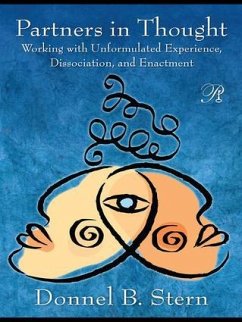
Richard M. Billow's Selected Papers on Psychoanalysis and Group Process
Changing Our Minds
Herausgeber: Slonim, Tzachi
Versandkostenfrei!
Versandfertig in 1-2 Wochen
162,99 €
inkl. MwSt.
Weitere Ausgaben:

PAYBACK Punkte
81 °P sammeln!
This comprehensive volume presents Richard M. Billow's unique contributions to the theory and technique of psychotherapy, along with summaries and explications by the volume's editor, Tzachi Slonim.














